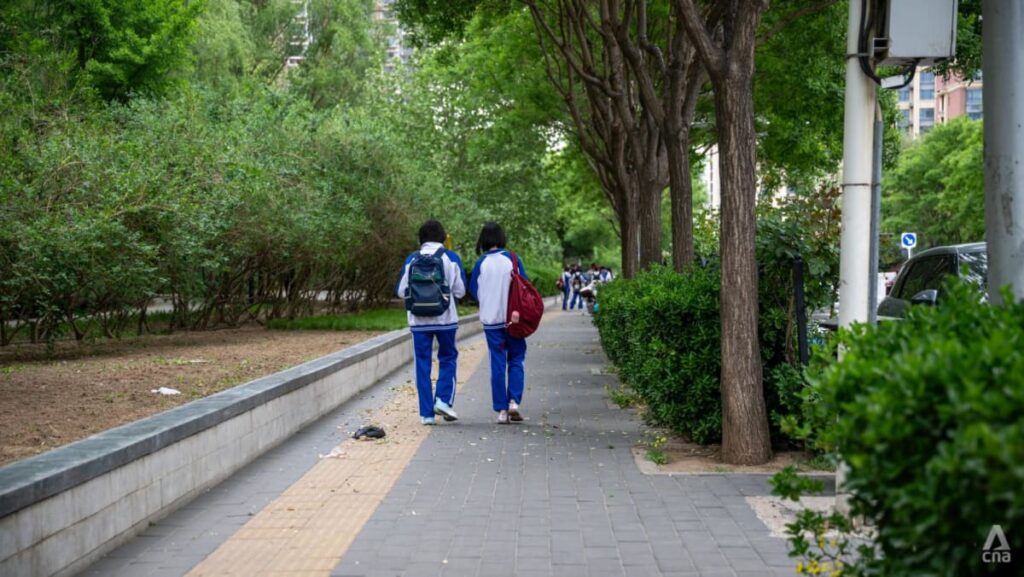Retired high school teacher Li Shengli is also a strong proponent of shuangxiu.
“It allows the students to get proper rest. If they have classes from Monday to Saturday without a break, they get no breathing space,” Li, who taught politics in a high school in Shenzhen’s Futian district, told CNA.
“In my view, effective learning depends on students’ self-discipline,” said the 61-year-old, who retired last year after 40 years of teaching.
With a two-day weekend break, Li said students can identify their weaker subjects and make up for the gap. They can also use the break to review or consolidate what they have learned during the week.
“I think this approach is quite good. I don’t really agree with exhaustion-based learning strategies,” he said.
At the same time, Li acknowledged that from the perspective of a parent, there would be the fear of their child “missing out” on their studies with a two-day weekend break.
“I would have to consider that my own child is relaxing, but other children aren’t, which means my child is missing out. Parents do have that mindset,” he said.
“Third-year students do require breaks, they want the breaks. But from what I see, there’s still a difficulty in eliminating classes on Saturdays, and the pressure mainly comes from the parents.”
Li shared how, during the winter break, especially during the pandemic, classes would be cancelled. Yet, some anxious parents would contact the school requesting remedial classes for their children.
“As teachers, we hope that the children get to rest,” Li said.
“It’s heartbreaking to see the children exhausted … they may be physically present, they’re not fooling around, but their learning efficiency is plummeting.”
Read the full article here

